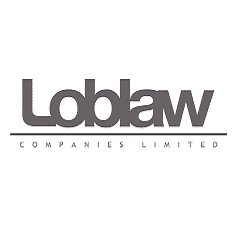3 Top Canadian Food and Grocery Stocks for December 2024
Prominent food and grocery stocks from Canada, traded on the Toronto Stock Exchange, tend to perform well across both weak and robust economies. This is mainly attributable to the implementation of a strategy that focuses on low margins and high volume.
This allows the retailer to lower costs and outperform smaller food companies.
Remember when you first learned how to invest in stocks, and people would tell you to “invest in what you know.” Food and grocery stocks fall under this category and, as such, are extremely popular.
But don’t get the wrong impression about food stocks here in Canada. Some can give Canadian investors precious growth. In fact, one of the largest chains in the country, Loblaw, has been one of the best performing Canadian blue chip stocks over the last while.
Humans need food to survive. As such, the food and beverage sector of the stock market is often looked at as a staple.
In this article, we will be going over 3 Canadian stocks that focus on food and grocery that investors need to look at. Each food and beverage stock will bring something different to the table (no pun intended).
What are the best grocery stocks to own right now?
- Loblaws (TSE:L)
- Metro Inc (TSE:MRU)
- Premium Brand Holdings (TSE:PBH)
Loblaws (TSE:L)

Loblaws (TSX:L) is one of Canada’s iconic brands and largest food retailer.
It is a holding company and a segment of George Weston that operates in various industries. From grocery stores to financing services, the company provides various products to Canadian consumers via its Shoppers Drug Mart segment, including healthcare products.
Loblaws owns more than 2455 stores, and the food and beverage company’s ability to survive practically any economic condition can be attributed to powerful brands, both premium and discount-related.
Many investors are bearish on brick-and-mortar retail stores right now, especially with the emergence of Amazon. However, Loblaw is doing well to counter this, as it delivers strong e-commerce growth.
Those who want proof of Loblaw’s ability to thrive during economic downturns should look no further than the 2008 financial crisis and the COVID-19 pandemic. The stock fell from the high $ 30s to $23 during the peak of the 08 crisis but returned to pre-crash levels within a couple of years.
In the case of COVID-19, the stock increased in price due to panic buying.
With the Canadian economy nearing a recession (arguably in one, depending on who you talk to), Loblaw likely has the most significant “discount” factor and largest economic moat out of all major grocers, which is certainly helping them. Most Canadians are, on average, 10km from a Loblaw store.
During penny-pinching situations, you will likely see consumers head to stores like Superstore and No Frills over Sobeys or Safeway, owned by Empire Company (TSE:EMP). I’ve even started doing this myself.
With a market cap of just over $46B, this is the largest grocer in the country and a blue-chip option for those looking for a defensive stock. However, if you’re looking for high income, you may be disappointed with Loblaw. It only has a dividend yield of around 1.2%.
Metro Inc (TSE:MRU)

With a dividend growth streak spanning 29 years, Canadian Dividend Aristocrat Metro is Canada’s most reliable food stock when looking for dividend growth and one of the best food stocks in the country.
Over the past five years, the supermarket chain has a 5-year annual dividend growth rate of around 10%. Metro Inc (TSX:MRU) is one of Canada’s largest grocery and pharmacy companies.
The firm also acts as a distributor, leveraging its supply chain capabilities to service smaller neighbourhood grocery stores. Most of its operations are in Quebec, which houses over 70% of its owned and franchised food and drug outlets.
The company operates under various grocery banners in the supermarket and discount segments. Brand names include Metro, Food Basics, Super C, Brunet and Jean Coutu Group.
One key concept that often goes unnoticed with Metro is that the company owns most of its real estate properties. This could allow the food retail and beverage giant to monetize via REIT conversions like other major retailers, Loblaws and Canadian Tire, have done with success.
The company has over 987 food stores and 640 drugstores. However, consumers in western Canada may be unaware of Metro, as most of its stores are in eastern Canada.
The company is aggressively pursuing lower labour costs via self-checkouts. It is adding new distribution centers to deliver a broader range of products more efficiently.
Metro’s yield of 1.9% isn’t groundbreaking, but considering its strong dividend growth streak, we still like the company.
Not only does it provide a strong defensive position in times of economic uncertainty, but you can bank on the company paying you more in the form of a dividend every year.
Premium Brand Holdings (TSE:PBH)

Premium Brand Holdings(TSX:PBH) owns specialty food manufacturing and distribution businesses.
It has operations on both sides of the border, with dozens of brands under management. The company’s segments include Specialty Foods and Premium Food Distribution.
The Specialty Foods segment consists of its speciality food manufacturing businesses, contributing about two-thirds of its revenue.
The Premium Food Distribution segment comprises the company’s distribution and wholesale businesses.
The company has grown from a small Canadian company to a North American conglomerate. It is also a Canadian Dividend Aristocrat, having raised dividends for eleven straight years. Although this isn’t as long as our previous stock Metro, considering the company’s growth, we don’t mind.
Premium Brands has been described as a serial acquirer. Since 2006, there aren’t many years where the company hasn’t made at least two acquisitions.
After a relatively tough time during the pandemic, analysts are expecting the company to return to double digit growth on both the top and bottom line for the next few years.
Now, these are just estimates and subject to change, however, the company has shown it can hit these numbers in the past. So, we believe they could move forward.
In the case of more economic pressure, you can expect Premium Brands to undergo significant volatility compared to our other Canadian food stocks on this list. We witnessed it during the bear market of 2022.
This is primarily because Premium Brands doesn’t have a strong discount brand presence, and consumers may head to cheaper variants like Loblaws. Along with this, the company also caters to events. In a recession, we could see a slowdown in bookings.
The volatility statement was definitely true during the COVID-19 crash back in March 2020, when Premium Brands was hit very hard. The company lost over 37% of its stock price in just over a month.
This is a higher risk/higher reward option for those looking to buy a niche Canadian grocery stock.
